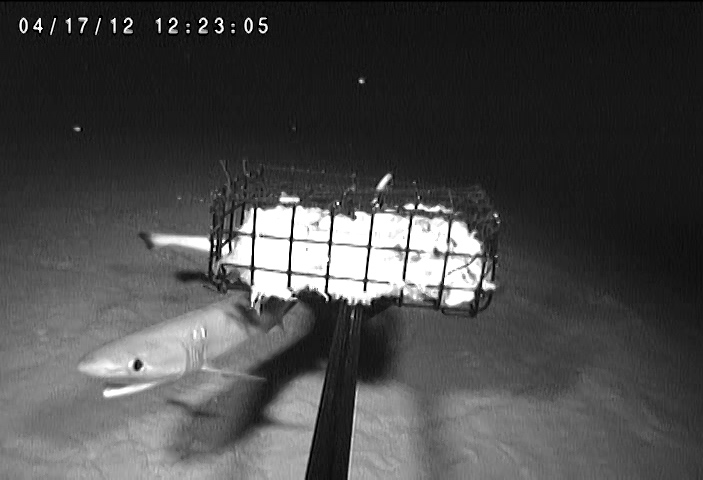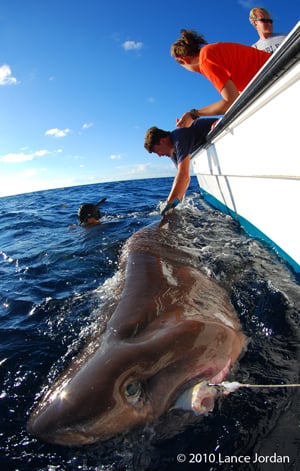Deep Water Baited Video Surveys Bahamas: A New Project at the Cape Eleuthera Institute/Island School
The Shark Research and Conservation Program at the Cape Eleuthera Institute, in collaboration with Dr. Edith Widder from the Ocean Research and Conservation Association ORCA), has recently embarked on an exciting new research project, using a deep water baited video camera known as ‘The Medusa’, to document the weird and wonderful creatures that inhabit the depths of the Exuma Sound, The Bahamas.
The deep water research project started in 2010 in collaboration with Dr. Dean Grubbs of Florida State University, Dr. Demian Chapman of Stony Brook University, and Lucy Howey-Jordan of Microwave Telemetry, Inc. The initial study investigated the diversity, distribution and abundance of deep ocean sharks living in the Exuma Sound. This new direction of shark research encountered an incredible degree of success. Having completed 71 surveys, the team captured 151 animals from 10 different species across a range of depths. These ranged from a 31 cm (12 inch) fully grown sawtail catshark to a 389 cm (13 ft) bluntnose sixgill shark. Throughout the course of the study, Island School students took part in field work, providing a unique and valuable educational experience for the students.
More recently Dr Edith Widder, founder of the ORCA, joined the list of collaborators. A specialist in bioluminescence (the light chemically produced by many ocean organisms). A long time supporter of The Island School and Cape Eleuthera Institute, Dr. Widder generously offered the use of her deep sea camera to the Shark Research and Conservation Program. The Medusa is a self-contained camera system with the ability to record in the low light and high-pressure environment of the deep sea. This unit is capable of unobtrusively filming at depths of up to 2000 meters (6600 ft) using far red light undetectable by deep water fish and has a data logger to record salinity, temperature, depth and light.
Initial test deployments conducted have already identified a large number species a.o. elasmobranchs like bluntnose six gill and sharpnose seven gill sharks, Cuban dogfish and a sawtail cat shark. The amazing highlights from these preliminary
deployments can be found here http://www.youtube.com/watch).
Further deployments are planned later in the year.
For more detailed information or comment please contact Edd Brooks , the Program Manager of
the Shark Research and Conservation Program (eddbrooks@ceibahamas.org Office Telephone –
+1 242 334 8552 or check out http://www.ceibahamas.org/


